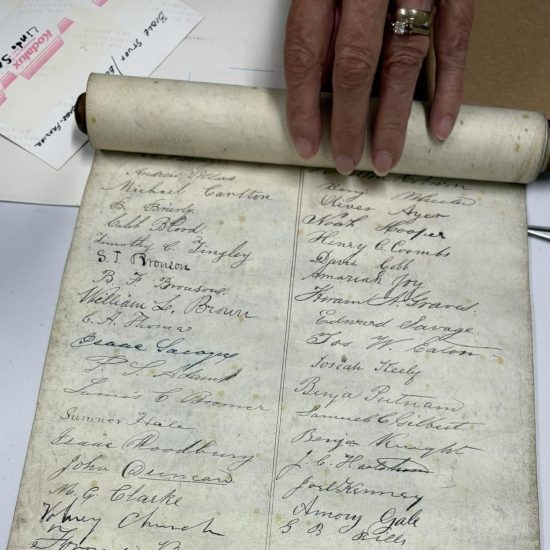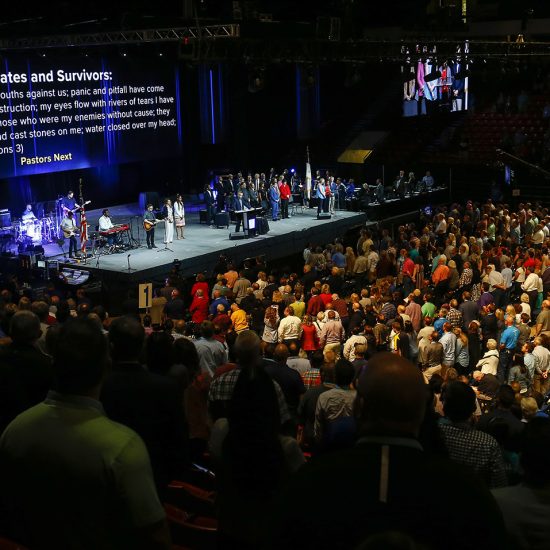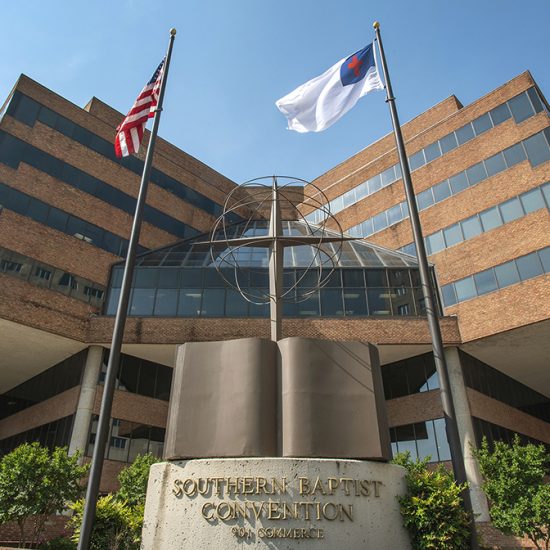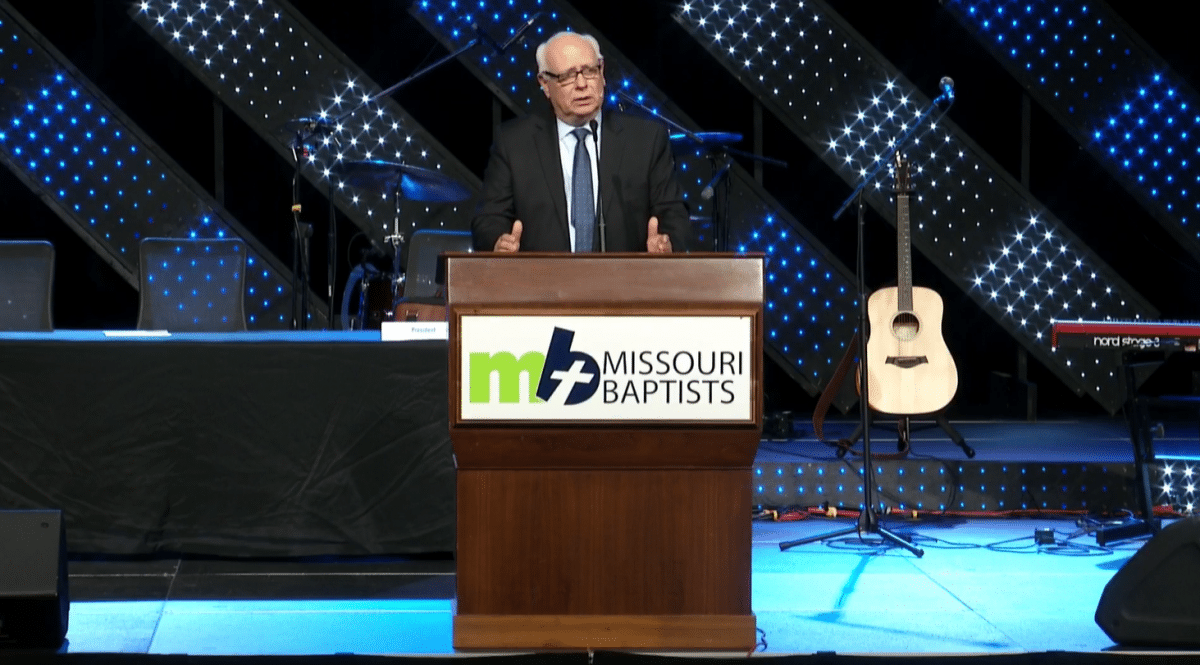
For nearly 100 years, the Cooperative Program unified giving plan has fueled the work of the Southern Baptist Convention and affiliated state conventions, ministries, and missionaries. But leaders of the Missouri Baptist Convention are encouraging churches to pick and choose which Southern Baptist entities they want to fund.
Earlier this month, the MBC Executive Committee held a special-called Zoom meeting and approved the creation of a “Plan B” giving option where churches can choose which SBC entities (such as seminaries and mission boards) they don’t wish to fund. Under the traditional CP giving, now known as “Plan A,” the MBC forwards 38% of the money to the SBC to be divided according to the national CP budget approved by SBC messengers (and the MBC keeps the rest for itself or affiliated ministries). If a church now gives through Plan B, the MBC will also keep the percentage that would have gone to the SBC entity or entities being defunded.
MBC President Jon Nelson said “this is only temporary” in response to SBC controversies, but the MBC’s decision is adding to the growing divisions. MBC leaders pointed to a few issues to justify the creation of the alternative giving plan.
Last year, the SBC’s Executive Committee voted to waive attorney-client privilege — as SBC messengers requested in a vote at last year’s SBC annual meeting— in an investigation into allegations that the SBC’s EC mishandled allegations of clergy sexual abuse. Three of the four Missourians on the EC voted against waiving privilege: James Freeman (who has since resigned from the EC), Monte Shinkle, and MBC Executive Director John Yeats (who also serves as SBC Recording Secretary). Daniel Carr voted for the motion.
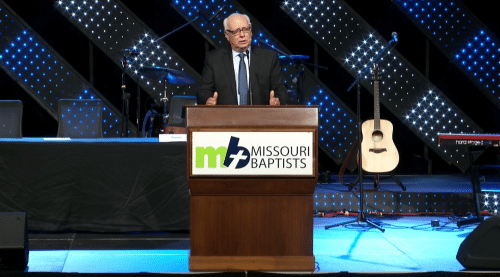
Screengrab as John Yeats addresses the Missouri Baptist Convention’s annual meeting on Oct. 25, 2021.
Yeats, the longest-serving current member of the EC, not only repeatedly voted against the waiver but also publicly argued against following the will of the messengers before and after the EC waiver vote passed. He criticized the majority of the EC for the vote and suggested it could harm the work of churches. After whipping up opposition to the vote, Yeats now points to that opposition to justify the creation of Plan B, despite his role as an SBC officer where he’s supposed to serve the SBC’s interests.
“We’ve really struggled with wanting to provide the Plan B, but as more churches began voting with their feet, we realized we needed to make it available again,” Yeats told the SBC’s Baptist Press, but he didn’t name any churches that actually left the convention because of the issue.
Yeats also claimed they created Plan B because “local churches didn’t want to participate in the litigation costs.” If litigation emerges because of the EC’s vote, it would likely be because of misdeeds by the SBC’s EC in protecting sexual abusers. Similarly, Don Hinkle, editor of the MBC’s publication, criticized the decision to waive privilege as inaccurately made “in haste and based on emotion” and complained the decision “means Cooperative Program dollars sent to the SBC Executive Committee could end up in the hands of lawyers or in a legal settlement.”
Ironically, the last time the MBC created two CP plans, it was to break an earlier promise that the convention wouldn’t spend CP money to fund its lawsuits against five ministries (including their failed suit against Word&Way). At that time, however, Plan A funded the litigation costs and was the default position so churches had to actively pick Plan B to not be forced to give toward the lawsuits.
Before that, MBC leaders criticized efforts to carve out different giving options. As the MBC defunded and prepared to sue five ministry organizations two decades ago, MBC leaders criticized an effort by one organization to create separate giving plans so churches could still fund the organizations under attack.
“They are trying to undermine the Cooperative Program and create division among Missouri Baptist churches,” complained Jay Scribner, the MBC’s president at the time, before adding that the MBC would look to take additional actions against Word&Way for even reporting on the alternative giving plans.
Another issue MBC leaders raised this month to justify the new Plan B is that the SBC’s EC hired a new law firm. But this controversy arose from the MBC’s leadership.
Hinkle condemned the decision to retain a new law firm in a February column. The company is helping the SBC on a temporary basis amid the sexual abuse investigation. But for Hinkle, the issue wasn’t their legal competency. Rather, he blasted the firm for supporting “the Nashville Pride festival, the LGBTQ Bar, and is praised by the Human Rights Campaign, one of the nation’s largest LGBTQ organizations.” (The firm also represents conservative groups like the National Rifle Association.)
Hinkle claimed the firm’s philanthropic efforts “threaten the First Amendment rights of Southern Baptists.” Thus, he argued the SBC shouldn’t employ such a firm. He added in a follow-up column that people should be concerned “over how Cooperative Program money is being spent.”
The officers of the SBC’s EC responded by explaining how and why the firm was chosen on a temporary basis, and noting that they would begin the process later this year of choosing a more permanent legal counsel. But that didn’t stop MBC leaders from pushing forward with Plan B.
Hinkle praised the decision to create Plan B as proof of the MBC’s “absolute belief in the inerrancy, infallibility, and sufficiency of Scripture.” He added, “The MBC remains in an on-going struggle with LGBTQ+ advocates in Missouri.”
SBC Leaders Voice Criticism
The move by the MBC to create an alternative giving plan that not only could defund some SBC entities but also keeps more funds in-state sparked criticism from SBC leaders. In particular, Plan B was criticized for violating the spirit of the CP.
“Almost 97 years ago when the Cooperative Program was created it was based upon working principles,” said Willie McLaurin, interim EC president and CEO. “Money given by the churches was to be evenly divided between the state convention and SBC.”
“Another working principle that guided this cooperative effort was that the funds given by the churches were held to be sacred trust funds belonging to both the state conventions and the SBC,” he added. “The state conventions were not to touch the SBC portion for their own use. Those guiding principles speak to the heart of cooperation.”
Similarly, Rolland Slade, the chairman of the SBC’s EC, said that although “I understand their concern,” he would prefer they give to the CP instead of “escrow their funds for a season.” Noting his time as a Southern Baptist missionary, he added, “I understand how important these gifts are.”
William Thornton, a Southern Baptist minister who writes for SBC Voices, criticized the Plan B in a piece titled, “Missouri Baptists show us how to trash the Cooperative Program.”
“The Missouri state convention would like to assist churches, not in reaching the world for Christ through evangelism, education, and support but in slicing and dicing up the Cooperative Program into selfish and self-serving little chunks,” he wrote. “Shame on the Missouri Baptist Convention.”
Long before the recent controversies and divided giving options, Missouri Baptists once modeled a unified giving plan before the creation of the CP. The “Missouri Plan” provided a way for churches to support both Southern and Northern (now American) Baptists in the years after the Civil War. Eventually, the state convention ended that radical experiment in Baptist cooperation. Now, they threaten yet another cooperative giving plan.

